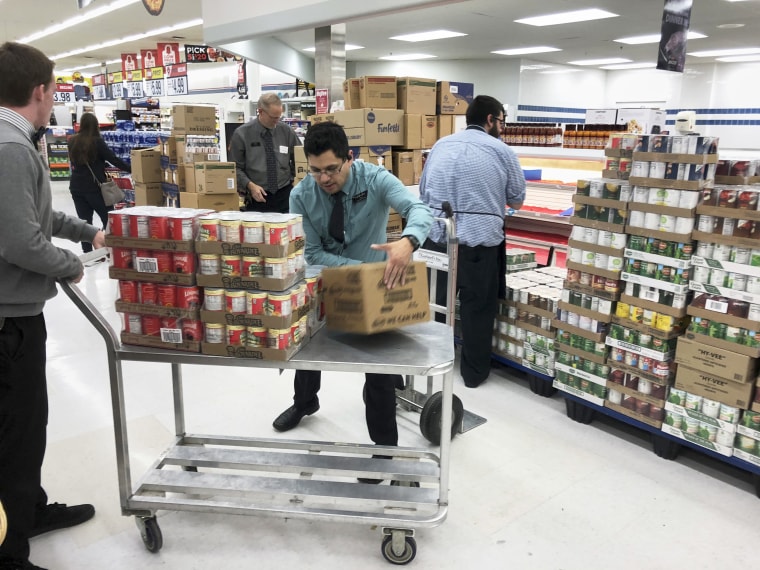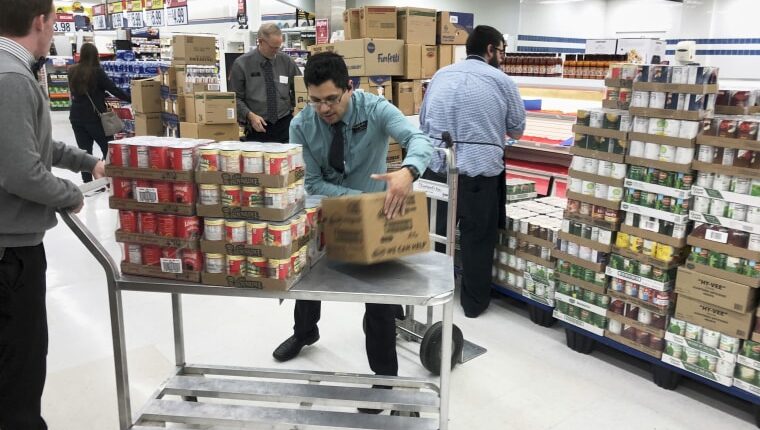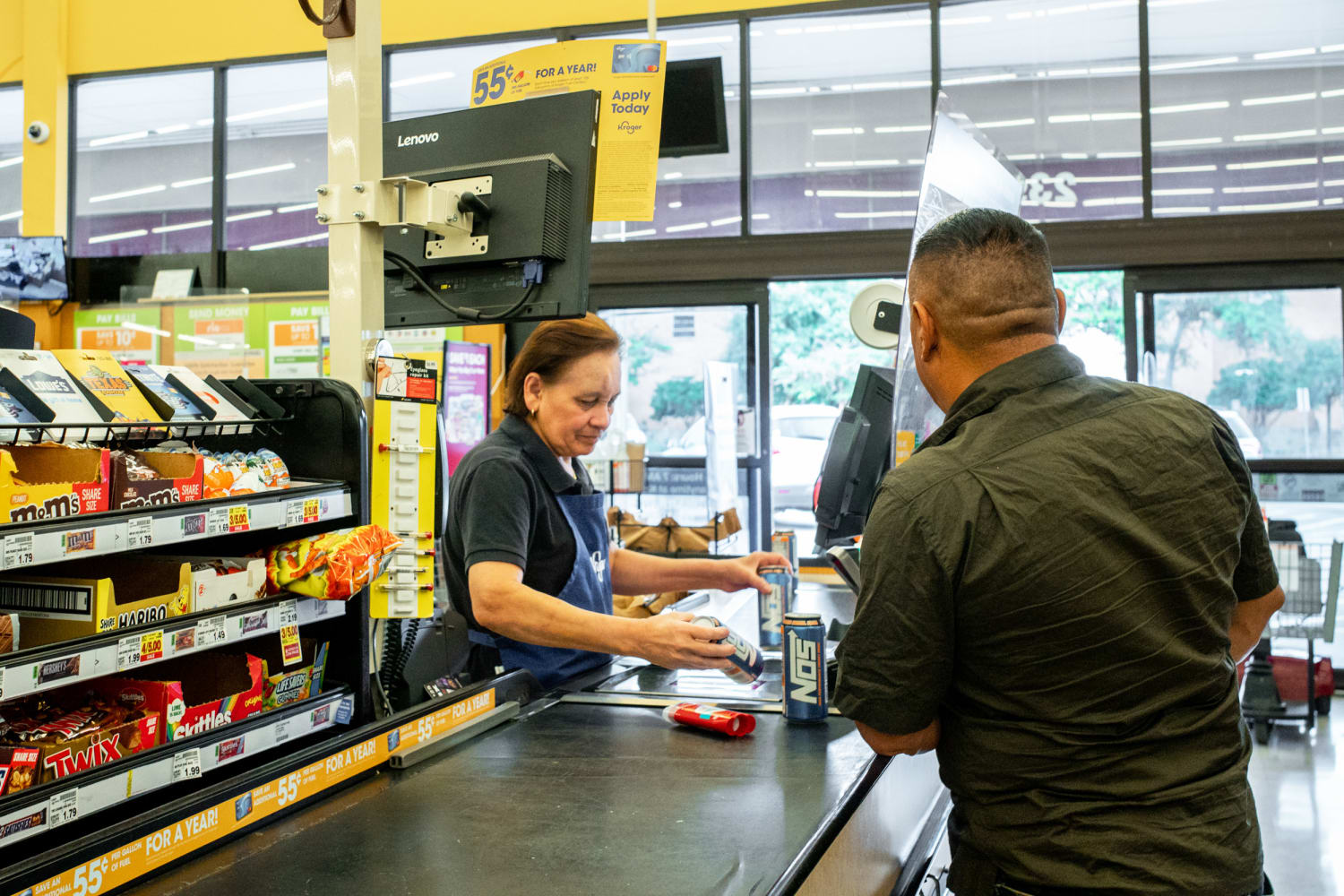Grocery stores regularly negotiate with suppliers, such as multinational food and household-goods giants like Unilever and Procter & Gamble, to set pricing. Those negotiations often involve grocers flagging their in-house alternatives to name-brand items in an effort to secure competitive price levels.
Iowa-based Hy-Vee, for example, said it might mention products supplied by Topco, a cooperative of grocers that produces its own private-label products, in discussions with major suppliers of baked goods.
Grocers are increasingly testing the extent of their bargaining power this year as consumers continue gravitating toward grocers’ own “private label” goods. Private labels represented 21.9% of total food sales at the end of 2022, Bank of America Research said on Feb. 8, up slightly from roughly 21.6% the year prior (but below the pre-pandemic level of 22.4%).

Reynolds Consumer Products, which produces both name-brand and private-label products, said on a recent earnings call that party cups, plastic wrap and parchment paper are among the categories where consumers are turning away from pricier brand names.
Clorox has said consumers still appear to be staying with its brand-name items but acknowledged that more shoppers are opting for smaller packs to reduce their grocery receipts.
“Some consumers are choosing to buy opening price points, because perhaps that day, their wallet, they have a limited amount of money they can spend in the category,” CEO Linda Rendle told analysts on Feb. 2. In other cases, consumers are buying in bulk to save per unit.
While grocers believe shifting consumer trends are strengthening their hands in pricing talks, it remains to be seen whether their efforts will yield lower prices for more shoppers.
Some major chains, such as Kroger, have already wrung price concessions from suppliers in recent months — in some cases after instituting their own earlier price hikes — but smaller rivals wield less clout in talks with food makers and distributors. Selling groceries is already a narrowly profitable business, leaving retailers little room to absorb suppliers’ price hikes without losing money, which limits their ability to avoid passing on higher costs to shoppers.
Gosch said he is “hoping price increases slow” as a result of industry-wide negotiations but warned that a “flattening out” of prices overall is unlikely in the next six months.
For their parts, executives at major suppliers generally have not promised price cuts. Mondelez, the snacking company behind Oreos and Ritz, said last month that it had fielded requests for lower prices in the U.S. but saw “no need” to roll out discounts.
“In fact, what we’ve done in the last month is promote less to get our customer service back up,” Mondelez CEO Dirk Van de Put told analysts on Jan. 31. “As long as volume continues to be this strong, we are not planning to increase our promotional pressure at all.”
Source: | This article originally belongs to Nbcnews.com










